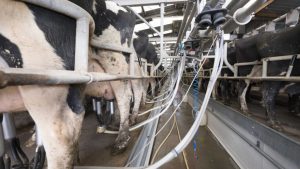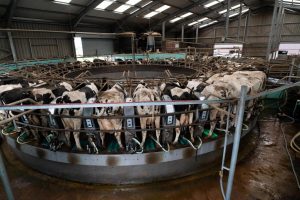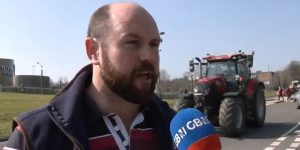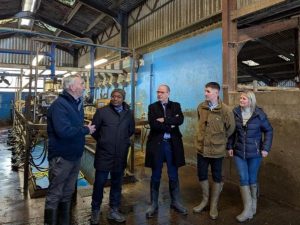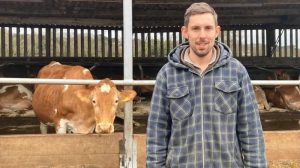
Efficiency and effective communication are two key components of his farm business model, both which he believes are crucial to its long-term sustainability.
He says: “If we can produce longer living cows, calve heifers at 24 months so the heifer period when they are not productive is spread over a longer lifetime with more litres. I think we can make a real difference in terms of reducing the carbon footprint per litre of milk.”
Beyond carbon and biodiversity has a part to play, says Bruce, with environmental gains and farming able to co-exist with the right management.
He says: “We have done quite a lot of work towards filling poor producing areas of the farm with things such as tree planting and linked these with grass margins, hedges and so on creating wildlife corridors.
“I think we can achieve real environmental benefits by being clever about the habitat enhancements we do rather than allowing fast areas to be rewilded or planted with trees.”
He also believes grass-based agriculture has an important role, but equally so that we do not ‘export problems’, while breeding and genetics are other areas he feels there are gains to be had.
He says: “It seems a bit pointless being mindful of biodiversity on our own acres if we then do not buy soya and other feed which is responsibly sourced. But particularly with the huge feed price hikes we are seeing, particularly for organic soya, it is becoming increasingly necessary that we do something.
“This probably means a need to grow better forages and conserve them better. We are almost being forced economically to be better sustainably.”
That said, he is hopeful this could stimulate more research into growing better home-grown proteins, as well as genetics, and how these could be utilised for sustainability gains.
“There are some cows which do not emit any methane. At some point somebody is going to pinpoint the genotype of the of cow which emits no or low levels methane or we are going to have access to the type of feed needed to create low emitters – that research will come.”








